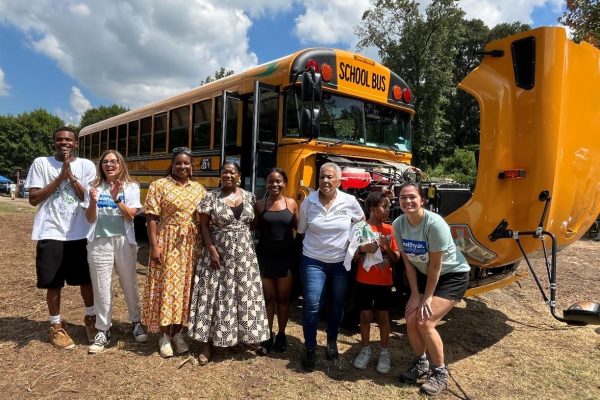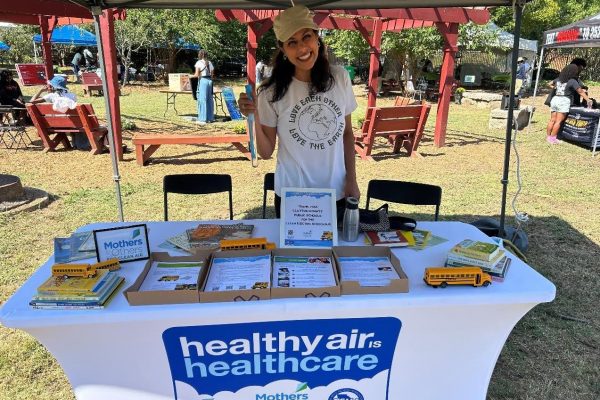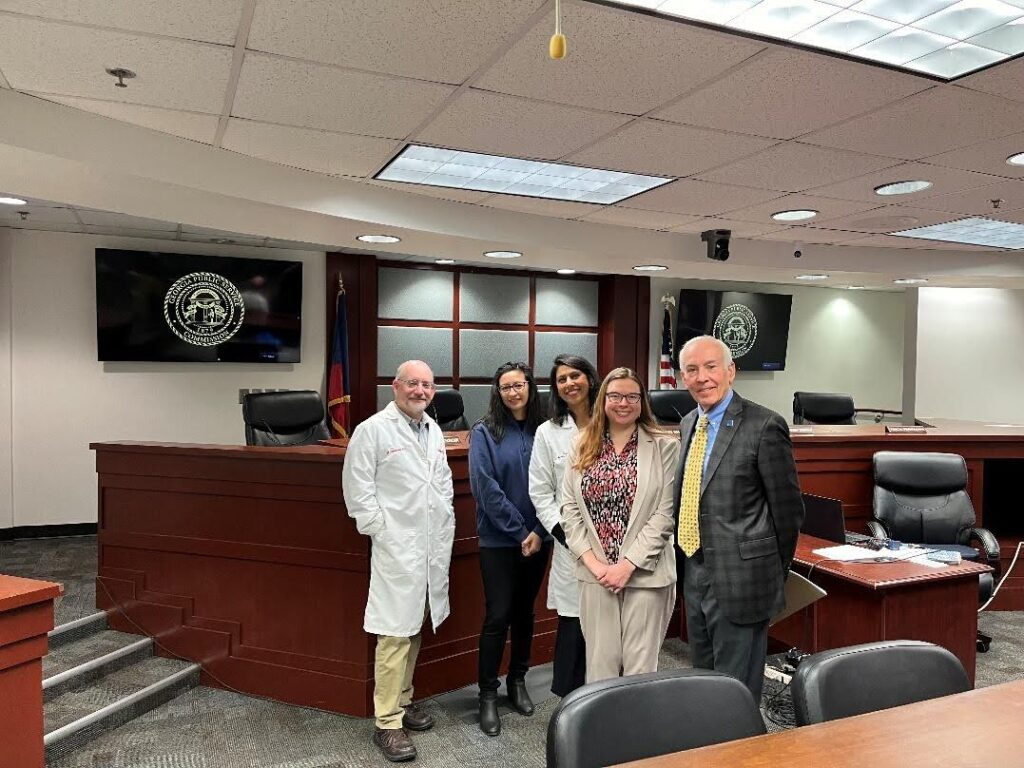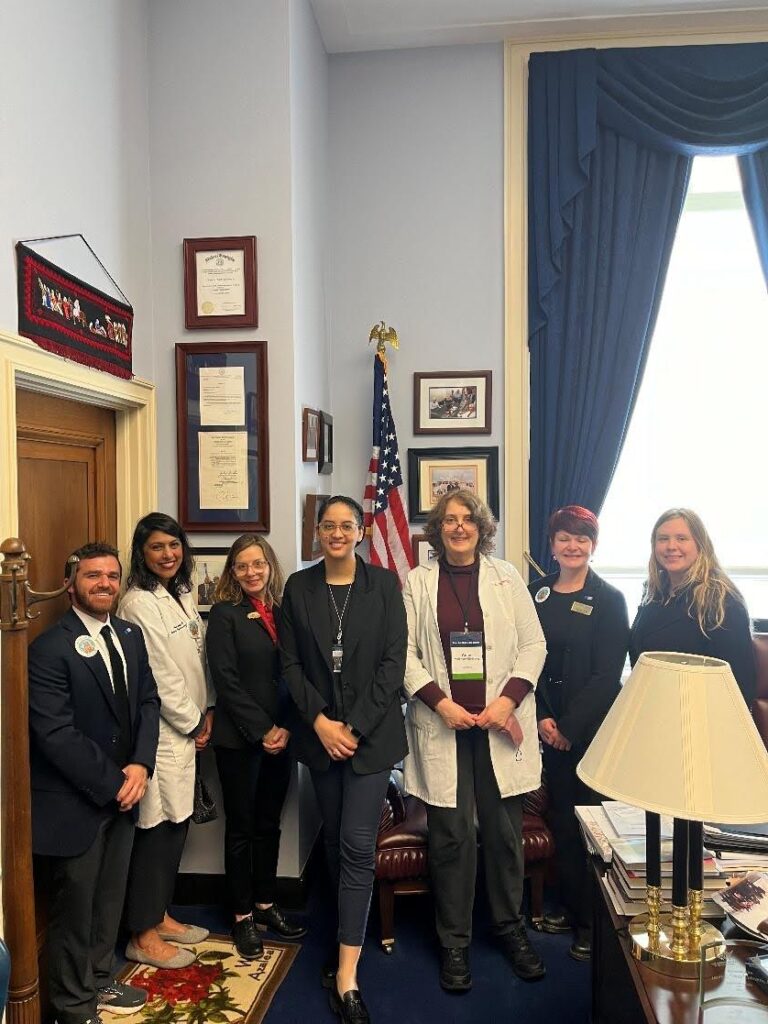Clinicians for Clean Air: Turning Data into Action for Georgia’s Kids

Center for Children’s Health Assessment, Research Translation, and Combating Environmental Risk (CHARTER)
Emory University and University of Georgia

Today, children are facing serious health issues like asthma because of polluted air, and low-income areas are hit the hardest. In Georgia, over half of all students rely on school buses that expose them to significantly more pollution than their non-busing peers – sometimes 5 to 10 times more! The toxic exhaust from Georgia’s fleet of 15+ year-old diesel buses is largely to blame.
Every day, kids who ride diesel buses are exposed to 40+ toxic chemicals – some of which can cause cancer and damage their lungs (including formaldehyde and benzene). Diesel fumes are harmful to all children and contribute to more asthma attacks, less energy in play, and more problems at school (like lower test scores and more missed days) – compared to the cleaner air in electric buses.

Dr. Preeti Jaggi, Professor of Pediatrics at Emory University, and her partners at Mothers and Others for Clean Air are working to solve this serious but often overlooked health risk. In 2024, Dr. Jaggi and her team received a CHARTER Translational Planning Grant, which funds community partners to translate key children’s environmental health research to relevant stakeholders in the community.
Dr. Jaggi and her team have built a state-wide movement to expose the critical link between clean air and children’s health. Imagine trusted healthcare professionals providing clear, evidence-based facts and recommendations to cut through competing priorities within school systems and inspire action towards a cleaner, healthier environment for our kids. Their initiatives include producing a monthly newsletter for the healthcare community on air pollution. They also maintain an active blog on air pollution data and collaborate with school districts to secure clean bus funding. In addition, they are leading/participating in advocacy sessions and town hall meetings–which are helping to mobilize healthcare workers to champion clean energy in Georgia.
“Our plan for this funding was to build relationships with local communities who are being most affected by air pollution, and the best way to do this is to collaborate with community-based organizations who are on the ground and have built trust with constituents.”– Dr. Preeti Jaggi


“Thank you for this [Charter] funding. It has helped us to organize in-person gatherings and produce newsletters, which is vital to continuing contacts.” – Dr. Preeti Jaggi